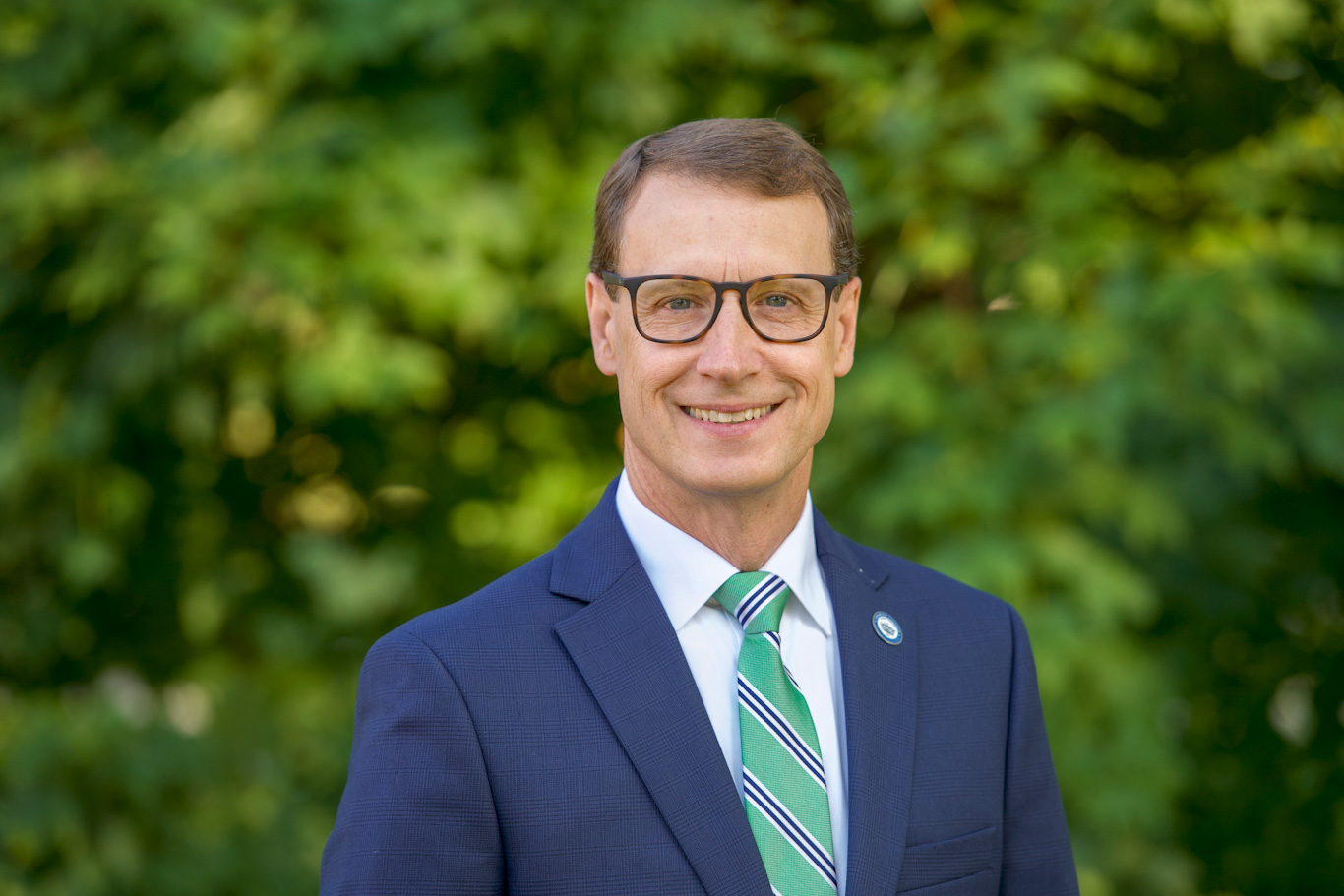Dr. Robert Clark has been dubbed the ‘Singing Professor’ at Cedarville University in Ohio. In our interview, it was clear this assistant professor of history isn’t all that comfortable with the nickname, but he gets it. That’s because, on occasion, when the subject matter feels right, he does segue into song.
Cedarville was ranked #2 nationally for student engagement – and Professor Clark is one reason why.
Robert traces his impromptu singing back to his days as a youth pastor, and later as a teacher at a Christian high school in Kansas. Now, at the university level, he continues to use song to help students relate to a period or situation in the past. “I would spontaneously think of a piece of music that was either period-authentic to what we were talking about or that illustrated a particular theme, a longing, or a joy, or a concern that people had in the area that we’re talking about…and sing a few phrases.”
‘Wow, our history teacher just sang’ - the reaction? “Students typically sat up.”
“I would see smiles on those who were paying attention. I would see awkwardly shocked looks on faces of students that (he smiles) hadn’t been paying attention – and often, it caused students to talk to me after class and say something like, ‘I had never thought of that idea like you described it – until you sang that – and then I realized that those things were connected.’” Dr. Clark shares another reaction would be, “I did not really think that this was a terribly important subject and then I thought of how much that music expressed what people were struggling with.”
And that is music to Robert’s ears.
“These would be the moments we teach for. Those of us who love to teach, who love to help people grow into the servants of God, that God designed them to be, to understand the world in which they live in order to be more effective in their generation, the ‘light bulb moments’ are what we live for!”
We asked if students ever join in when a song comes up? “Sometimes. I Sometimes invite them if think either I have had some time with the class and they are used to me and they know that they’re in a safe place, or if I think it’s a very familiar song…then I will kind of wave my hand in a circle motion that says ‘join me while I’m singing.’” He emphasizes that if a student is not comfortable, no problem. “I don’t like to put my students in a difficult place.” Robert explains in a college classroom he generally uses a song as an illustration. “In fact, I have to be honest. I only have a handful – maybe a couple of handfuls – of places at which I know in advance that I know I’m going to incorporate music.”
Professor Clark comes from a musical family. He’s led music at camps and has been involved in church music and has acquired confidence in his own musical ability. As a result, “I often don’t even know when I’m going to use a musical illustration of what we’re talking about.” Sometimes it just comes to him. Maybe a God thing. A gift he’s grateful for.
An example of songs he has brought to a history lesson?
“When I talk for example in the civil rights movement, students are often not familiar with music of the civil rights era – and in particular, a song like We Shall Overcome, which was central as an anthem of the civil rights era, something that a lot of my students I find are not familiar with. Or they’ve heard that over and over again. They know the phrase, but they’ve never really sung that or known it. They’re not African American students. They don’t have that heritage. Of course, my African American students in the classroom rarely don’t know that song because it’s part of their cultural heritage, their family tradition.
Robert believes that music has power. “Music as a medium for conveying information or ideas or a longing or experience…music touches the soul…tends to get through.”
Sharing from his heart, “I’m very attuned in the classroom, not only to the content that I’m covering, but to the people I’m walking through that content with. So, I’m often reminded that I teach students…not content. Of course, we teach content. It would be pretty useless without it, but it’s the student learners in the classroom that matters and so what I can do to help them connect with the content in a way that God can use that in their lives as he develops them, brings them to faith in Christ perhaps – or here at Cedarville University – most of our students have made a clear commitment to faith in Christ – and so, they’re growing into his image and all truth guides them toward the God who is the God of truth.”
In our complete interview podcast just below, learn what we would find on Dr. Clark’s Spotify list. And how the late singer Tennessee Ernie Ford’s “16 Tons” helps students understand the challenges of life and industrialization that took place in America. And the specialness of “My Country Tis of Thee’ from 1831. And you'll hear a classroom recording of him belting out a teaching song.

